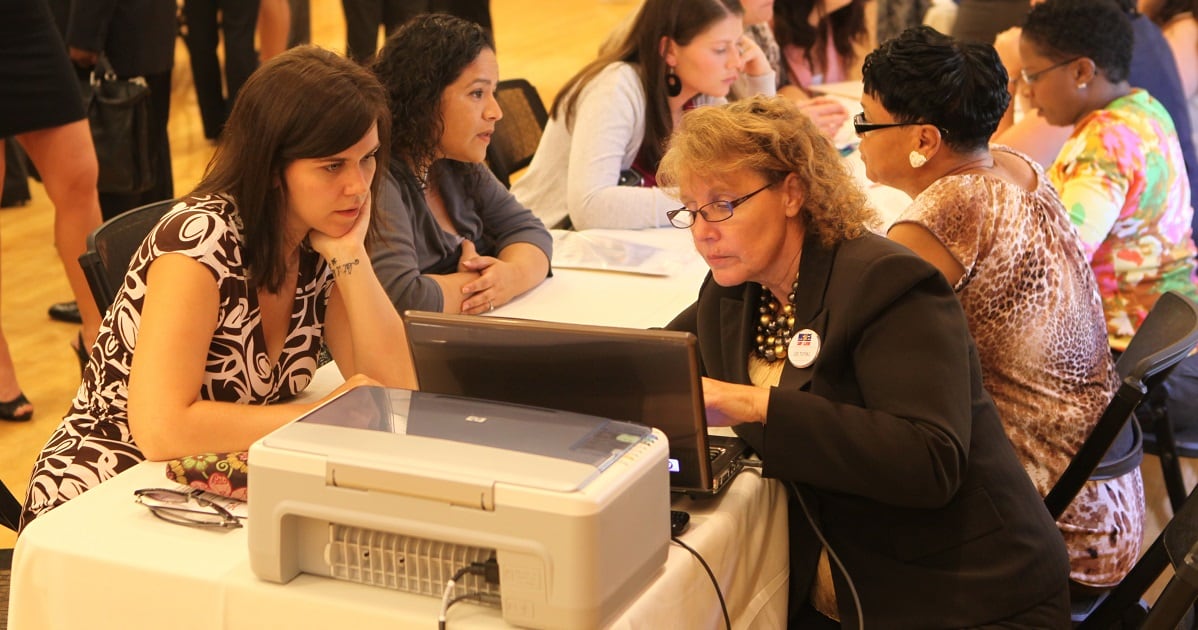In 2016, Army veteran Ebony Wilkins was looking for guidance on whether she should start her own business or climb the corporate ladder.
Then she met Kim, a chief financial officer at a New York City investment firm and fellow working mom, who mentored her for a year and ultimately helped Wilkins make the big decision. Now, Wilkins is happily working 80 hours a week as the boss of her own government contracting business in Washington, D.C.
“It’s totally the best thing that I could’ve done for myself, and I think that it probably would’ve (taken) me longer to get here had I not had a mentor like Kim to push me along and show me how to create that balance for myself,” said Wilkins, a former staff sergeant.
RELATED

The two women were matched by American Corporate Partners, a nonprofit that has been providing career counseling, one-on-one mentoring and networking opportunities for transitioning service members and veterans since 2008. So far, more than 13,000 have gone through the program.
The organization announced on Tuesday it is expanding its programming to include military spouses, who often face their own set of challenges in the job market.
The group partners with more than 70 companies, many of them with Fortune 500 status, who provide mentors and other support for veterans. The mentors and mentees meet at least one time a month for an entire year, mostly virtually, and work on such career skills as networking, resume writing and interviewing.
“The best way to think about us is Big Brothers Big Sisters, but to the military, and in this case the little brother could be a 220-pound Marine,” said Executive Director Colleen Deere.
The “existing model of these customized, high-touch mentorships” will continue for military spouses, Deere said, starting primarily through partnerships with the Army, though men and women married to active-duty service members of any branch can join.
According to a news release, ACP expects to mentor 1,500 spouses over the next two years.
“I’ve seen a lot of relationships where the spouse really has to put their career on hold; they’ve had to adapt to wherever the new location took them,” said Wilkins, who still keeps in touch with her mentor. “At this point, the spouses really need some sort of continuous support and a way to help build their career through the transitions with their spouses. I’m excited for this program.”
Military Times contributor and former reporter Natalie Gross hosts the Spouse Angle podcast. She grew up in a military family and has a master's degree in journalism from Georgetown University.





